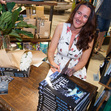Zena Shapter's Blog, page 9
May 6, 2020
Writing Rockface: The Finish Fright

You started creating a book, short story, life story or memoir, completed a first draft, now don’t know if it’s truly ‘finished’? Even seasoned writers can struggle with this question of when to stop. As well as writing amazing stories (he he!), I run a full-time creative support business. It includes editing, mentoring, teaching, book layouts, and other publishing and creative support for authors and publishers. I’ve recently seen so many clients so utterly stuck with this question, it’s time to speak up and add to my ‘Writing Rockface’ collection of advice. Other blogs in this series include:
The Filter Word InfectionThe Point-of-View DisorderThe Over BlightThe Starting AcheThe Continue Condition
Definition
The Finish Fright involves fear of finishing a writing project and sending it into the world (in whatever form that might be for the project). Writing is a process consisting of:
Concept creationDrafting – beginning, middle and endStructural revisionEditingTestingPolishingPublication
‘Finishing’ involves
the latter five of these steps: structural revision, editing, testing,
polishing and publication.

Symptoms
If suffering from Finish Fright, you will tend to keep your writing project(s) safe, silent and still in a drawer or desktop folder, unread and unloved, rather than risk being read and perhaps criticised by strangers, family or friends. However, this also risks wasting all your efforts in writing the project. Since no one will read your carefully crafted words, this will also deprive them of the chance to enrich their lives with your wisdom and/or entertaining creation. You are likely to experience disappointment and develop a feeling of failure that gnaws at you, spoiling your enjoyment of other aspects of life.
Causes
Finish Fright can be caused by a perceived lack of overall quality in a writing project, leading to uncertainty about when and how to share it with others. This can be caused by a lack of relevant reading, creative writing experience, or receiving useful feedback. Perhaps the writer hasn’t taken enough or the right classes on creative writing? Perhaps they’ve never been edited or edited well, or even read? Perhaps they’re reading the wrong type of books?
Luckily, as soon as most of my clients understand the causes of Finish Fright, they usually treat their manuscripts easily enough, or seek out one-on-one help to talk it all through.

Treatment
Assure yourself
This can be achieved by reading more books! You will then be able to correctly perceive the quality of your writing project, and what you might need to do to improve it. Be careful to select modern options in the same genre of your writing – because writing is continually evolving and we write very differently now compared to thirty, fifty, a hundred years ago (for example, see The Filter Word Infection and The Point-Of-View Disorder).
It can also be achieved by taking a creative writing class, which can teach you how to structure, edit and polish your words:

Does your beginning hook readers? Is it engaging enough for readers to turn the page?Does your middle sag? Middles generally involve several shifts: from being reactive to proactive, from facing old selves to embracing the new, there’s also often a shift in stakes.Does your ending fulfill promises made to the reader in the beginning?
Your writing project might require structural revisions and editing prior to being shared with others.
Others’ Assurance

It can also be achieved by seeking feedback on your writing from a trusted advisor, someone who will be genuinely constructive and helpful, to make sure your project is ready to be sent into the world and give you the encouragement and editorial feedback you need. This can be a professional editor, or a knowledgeable friend.
This is the ‘testing’ phase of the writing process. Most writers test their work to some degree.
Realistic Achievement
Also, ask yourself: what are you actually trying to achieve with your writing project? Do you want to:

create something you are proud of, which you can share with a close circlesee your book on the shelves of a bookstore reach readers with your words, print or digitalsell 10,000 copies win a literary prize and receive critical acclaimmake a full-time living with your writing create a body of work you are proud of over your lifetime supplement your career or business
If your answer is ‘all of the above’, you’re probably expecting more from your writing than you should!

Look forward
Once you’ve done everything you can to finish your writing, it’s time to put the fright aside and set your words free.
They’ll likely never be as perfect as you want them to be. But at some point, set yourself a deadline, then send it out!
Whether it’s to a publisher, releasing it online, or sharing it with your close circle, sending your ideas into the world will bring it beauty and wisdom!
Then, look forward to the next writing project – not back to the last.
Exceptions

Of course, there are exceptions to every rule.
Sometimes we’re absolutely right about our writing not being ready. In sending it into the world too early, you risk putting off readers for both this project and potential future projects.
So another option is to hold your current project back for now, start a new project, and look at the current one again in a few months.
Just make sure you do set a date to return to and review it, otherwise you will never face your Finish Fright!
Exercise:

Review the list above under ‘Realistic Achievement’. If you could only pick one from the list, which would it be?
Once you’ve made your decision, search online to find an image that represents your end goal, then set it as your desktop background.
Every time you go to advance your writing project, use the image to remind yourself of your goal, and drive your focus.
Questions?
Do you struggle with finishing and releasing your words? Do you have any
exceptions to share? Let me know in the comments below! Need writing help? Send me a message!
April 22, 2020
Writing Rockface: The Continue Condition

You started creating a book, short story, life story or memoir; but then you stopped? Now you don’t know how to continue. Even seasoned writers can struggle with the question of how to finish what they’ve begun. As well as writing amazing stories (he he!), I run a full-time creative support business. It includes editing, mentoring, teaching, book layouts, and other publishing and creative support for authors and publishers. I’ve recently seen so many clients so utterly stuck with this question, it’s time to speak up and add to my ‘Writing Rockface’ collection of advice. Other blogs in this series include:
The Filter Word InfectionThe Point-of-View DisorderThe Over BlightThe Starting Ache
Definition
The Continue Condition involves a state of being unable to finish drafting a writing project. Writing is a process consisting of:
Concept creationDrafting – beginning, middle and endStructural revisionEditingTestingPolishingPublication
‘Continuing’ involves
the second of these steps: drafting.

Symptoms
If suffering from Continue Condition, you will struggle to continue writing what you’ve begun, risking the creation of folders full of beginnings, snippets and musings, none of them compiled into a complete whole. Continue Condition can be visible to others, especially when friends and family ask how your writing is going. A lack of any concrete update for them will lead to feelings of failure and disillusionment. No one can read a story you almost wrote. You are also likely to develop imposter syndrome, doubting yourself and fearing exposure as someone who enjoys writing but just can’t do it.
Causes
Continue Condition can be caused by misconception. In books and movies, the process of writing can often be romanticised, depicted as a self-fulfilling contemplative task achieved with just a little bit of focus; overnight success then brings millions to your bank account. With this as a perception, you might easily become disillusioned with the reality of writing, and thus stop writing. Another cause is a lack of self-discipline. When you first start writing, unless you have a weekly or monthly mentor setting tasks and deadlines, a lack of accountability might see you drifting away from your goals. Finally, life might get in your way – you have other more important things to do.
Luckily, as soon as most of my clients understand their choice is to either live with or defeat Continue Condition, they usually take measures to progress beyond it, or seek out one-on-one help to talk it all through.

Treatment
Professional writers use many different techniques to avoid Continue Condition and keep themselves focused all the way through to the completion of a first draft.
Routine Goals
Writing can be hard
work. Sometimes, even the most
self-discipline writer can stray from their goal of writing. The following can
help:

Establish a writing routine, whether it’s once a day or once a week, allocate a time and a special place for writing so that when you enter it you’re ready to work. Note that this may involve sacrificing whatever else you usually do at that time, and it might not always involve an ideal setting (there’s nothing wrong with writing while commuting on public transport or on a park bench at lunchtime, that’s how I started!). Then, when it’s time to write, it’s time to write. Don’t let anything get in your way.Set yourself a daily word count. Either:Estimate how long your book will be in total (a standard novel is 60,000-80,000 words; short stories are under 7,500 words), then decide on a date when you want to be finished, and calculate how many words you have to write each day or week to have your project finished by your deadline; orWrite an optimal amount of words in a timed session, then set the goal of achieving that number of words each time you write.If you feel your concentration waning, check your word count and refocus. Don’t get distracted with editing or risk procrastination with research. If you need to, leave your phone in another room or turn off the internet on your device – you can always do any necessary research later.
Gift yourself

If you want to write, gift yourself permission to write by giving it equal importance to other things that are otherwise impeding you. Any one of us could allow life to get in the way of our writing, but then we wouldn’t write – you’re no different.
Also, allow yourself the gift of writing badly. You don’t have to write perfectly in a first draft, as you’ll likely be going back and changing things anyway – the more you write, the more you’ll discover about the project you’re writing, and the more you’ll want to change it. A first draft is all about getting words down on the page, which you can edit later. For now, embrace the warmly glowing idea you have and put it down in words. That is all.
Inspire yourself

Your story might be stopping you from continuing, and you might need an
extra inspiration boost. Achieve this by:
Keeping an inspiration collection handy in a desktop, digital or physical folder, comprising of images, words, quotes, thematic concepts, scientific developments, biographical details, music, and scene concepts. Consult your collection to keep your ideas fresh and flowing.Brainstorming expansion opportunities. Can you broaden (effecting more people) or deepen (effecting a character on multiple levels) your character experiences, story plot, or thematic connections? Common advice is to write what you know – what if you do the opposite?Trying a different way to start your writing – see my previous blog post!Writing alongside others who are also writing, either digitally with an online writing support group or physically in a library or coffee shop frequented by writers.Getting some early feedback. This can help if you’re experiencing self-doubt or overwhelmed. Find a trusted advisor, who can be genuinely constructive and helpful, to make sure you’re heading in the right direction and give you the motivation you need.Reading a book and study elements you like or don’t like. Could an element inspire your work-in-progress?Taking a break. It might be contrary to your routine and self-discipline, but if you also need to keep your imagination fresh and lively – take a short break, to avoid risking a complete break in your writing goals.
Exceptions

Forgive yourself. If you can’t finish drafting a story, it might be because it was a good writing practice, but that’s all. The real project you need to be writing might be waiting for you.
Forgive yourself for not being able to make the current project work – ditch it, and start something new.
Exercise:

PART 1
Write non-stop for five minutes, using the following sentence as your opening:
The air turned black all around me.
RULE: you must not stop writing for the full five minutes.
When the time is finished, count the number of words you wrote. However, these words were neither deeply considered nor relate to your writing project.
PART 2
Now write for five minutes on your writing project. You can pause for contemplation. When the time is finished, count the number of words you wrote.
PART 3
Compare the word counts to see how much time you need to allow for thought and consideration. Use this to estimate how long it will take to complete your writing project, realistically.
Questions?
Do you keep starting and stopping writing projects? Do you have any
exceptions to share? Let me know in the comments below! Need writing help? Send me a message!
To come:
The Finish Fright
April 8, 2020
Writing Rockface: The Starting Ache

You have a good idea for a story, but don’t know how or where to start? Maybe you’d like to create a book, short story, life story or memoir? Even seasoned writers can struggle with the question of how to start. As well as writing amazing stories (he he!), I run a full-time creative support business. It includes editing, mentoring, teaching, book layouts, and other publishing and creative support for authors and publishers. I’ve recently seen so many clients so utterly stuck with this question, it’s time to speak up and add to my ‘Writing Rockface’ collection of advice. Other blogs in this series include:
The Filter Word InfectionThe Point-of-View DisorderThe Over Blight
Definition
The Starting Ache is a painful sensation caused by being unable to start a writing project. Writing is a process consisting of:
Concept creationDrafting – beginning, middle and endStructural revisionEditingTestingPolishingPublication
‘Starting’ involves
the first two of these steps: concept creation and drafting.

Symptoms
If affected with Starting Ache, you’re likely to be plagued by confusion about how to start writing, thus risk remaining full of ideas without any external expression of them and grumpy with it. Not creating something you clearly yearn to create can also affect unconnected aspects of your life. You may experience feelings of disappointment, failure, and low self-esteem. You are likely to develop an unfulfilled sensation, with ideas and frustration building up inside your brain until you eventually explode. If you do write opening paragraphs or pages, you are likely to delete them.
Causes
The most obvious cause of Starting Ache is a simple lack of knowledge. Unless you know the options, how can you know which approach is right for you? Conversely, perhaps you already think you know how to start, yet when you do, it doesn’t sound right or flow as you expected?
Starting Ache can also be caused by fear – in particular the fear of not doing well. Last week I had a client who was completely blocked because they feared not being good enough. They were a perfectionist. If a sentence wasn’t right, it had to go. The problem was, this was every sentence. Fear can lead to a paralysing feeling of being overwhelmed with the task ahead.
Finally, time can be an issue
with Starting Ache. When will you have time to actually start?
Unfortunately the number of hours in the day are limited, so you might have to
sacrifice something else to make room for your creation process. If you want something
enough, with a little re-prioritisation, there are ways to make it happen!
Luckily, as soon as most of my clients understand that they won’t have a manuscript to edit unless they somehow overcome Starting Ache, they usually find a way to get going, or seek out one-on-one help to talk it all through.

Treatment
There are five ways to overcome
Starting Ache.
Character Experience
Stories are about change through challenge.
For example, if Zena wants chocolate but there’s none in the cupboard, and so she goes to the shop, buys and eats some – there’s no challenge in the story and it isn’t worth telling. If, however, she faces a series of interesting challenges on her way to the chocolate (even better, challenges that change her perspective in some way) that could be a story worth telling. The first way to start writing a story is therefore to consider the experience and insight of your main character(s):

what they want (‘external’ goal)why they want it (motivation, drive, often subconsciously based on an old ‘wound’) how much they want it (stakes)what they really need (often subconscious ‘internal’ desire they really need, hidden under some ‘lie’ they told themselves after the ‘wound’)what challenges they might face trying to get what they want and need (conflict)
All of these elements should be personal to your character in particular – stakes don’t have to be world-threatening to matter, they only have to matter to your character. A good way to think this through is to consider what matters to you – because generally, if it matters to you, it will matter to readers too.
How to start writing: write about what your character is doing today, given all of the above.
Plot Escape
Stories are about escaping into interesting events.
For example, if Zena wants chocolate, then watches a health program that changes her perspective on nutrition, so she decides not to buy anymore (noooooo!), there is change in the story but no actual movement – it’s not an interesting enough event for a story. If Zena watches that program, however, and it reminds her of a time when a friend ate too much chocolate and was sick – we at least have movement in that event recollection; it might make an interesting ‘flashback’.

Plot is the sequence of events that make up a story, where each event affects the next one through the principle of cause-and-effect. Readers want to be taken on a journey actually travelled by another. So the second way to start writing a story is to consider what will actually happen in it.
What events will happen in the story’s beginning?What events will happen in the story’s middle, connected to the beginning?What events will happen at the story’s end, connected to the preceding events?
You could plot out the main events, or even a full synopsis of your story. Once you have determine that connected sequence of events, you can then think how those events affect your characters. Which characters are most affected by your events? Whose story is this, who changes the most because of those events?
How to start writing: write a summary of your story’s plot.
Theme Connection
Stories are about connecting with readers over a central message.
What do you want to say with your story? What point are you trying to make? Why even write about Zena wanting chocolate – do you mean to comment on gluttony, self-discipline, the power of memories? The third way to start writing a story is to consider what larger thematic issue you want to explore with your story:
pick a theme you care aboutwhat question(s) do you want to ask about that theme?how could your story put those questions to the test?
A good way to explore theme is
to:
create characters who don’t yet understand or agree with your view on the themedevise related obstacles in the plot for those characters to overcome have your characters progress towards a thematic revelation that illustrates your point
How to start writing: write out your views on a thematic issue that could form the basis of a story.
Nothing
Stories are about imagination and self-expression.

Set your mind free to dream and create, and who knows where it might take you! Where might it take Zena’s problem with the chocolate-less cupboard – to another country, another planet? Who might she meet along the way? The fourth way to start writing a story is to simply start writing and see where it takes you.
Rather than plan out a character, plot or theme (called being a planner), just sit in front of a blank page and write ‘by the seat of your pants’ (called being a pantser):
abandon the confines of planning and simply find out what comes alive when you start to writeenjoy the surprise of not knowing what might then followexperience the story as your characters live their lives in real time, unable to predict the future
You don’t even have to start at the beginning of a story. You might find that what you write turns out to be the story’s middle or end. That’s fine, you can always write the beginning later, after you know where the story is going, who’s in it, and how best to hook the reader. By writing without a plan, your characters can develop and your plot can grow in ways you didn’t expect! Writing your story can be as much of a journey of discovery as reading is for the reader.
How to start writing: make up the story as you go!
Everything
Stories are about creation.
The process can be invigorating and thrilling; it can also be complex and frustrating. As you develop your work you may encounter problems that need fixing. Perhaps you started writing with a specific plan in mind, alternatively you winged it direct from your imagination, but now it simply doesn’t work on the page – essentially all you have is a story about Zena wanting chocolate, and it isn’t enough? Finding the best way to fix the problem is part of the fun! Every story is different, so you’ll need different solutions, and different ways to start writing each one. Whichever method you used to start your story, review the options above and try again with a different method.
How to start writing: Experiment!
Exceptions

You don’t have to write a story! You could ‘start’ by writing a:
vignette (a brief evocative description or account) diary entry blog postletter or email to a friend
Make them interesting enough and write enough of them, and they might end up being a different kind of story altogether.
Exercise:
Just start writing!

Go to your bookshelves or open any webpage and write down the first sentence you see – use that as an opening line to a story, and just start writing!Sit somewhere interesting, reflect on your surroundings, and just start writing!Consider the most dramatic events that happened this week, month or year, and just start writing!Recollect a recent experience you found challenging, and just start writing!
Questions?
Do you struggle with how or where to start writing? Do you have any exceptions to share? Let me know in the comments below! Need any writing help? Send me a message!
To come:
The Continue ConditionThe Finish Fright
April 6, 2020
Quarantine Quanta: Free Stories!
Quarantine Quanta is an anthology of really really small packets – ‘quanta’ – of literary light generated during a dark time, and you are invited to read them for free!

A drabble is a short story told in exactly 100 words. They’re extremely hard to write! But when I read about ‘Quarantine Quanta’, designed to ease the struggle of those trying to find their footing right now, I had to give it a go! Lifting people’s spirits with stories? I’m in!
My story ‘Feeding Time’ was selected for the anthology from just under 300 entries, and now the collection is free to read over here:
Contest eBook PDFContest eBook EPUBContest eBook MOBI
You can also download the anthology here – just scroll to the bottom of the page for a link. The 30 drabbles included are sorted into categories that mimic the timeline of people’s response to the current pandemic: real and surreal, pandemic, horror, science fiction and fantasy, and, finally, levity. Many thanks to Maura Yzmore for putting this together! You rock!
Now sit back, click on a link, and give yourself the gift of disappearing for a while into the creative realm of story!
March 30, 2020
Women’s History Month

Today is the last day of Women’s History Month, and to celebrate I’m over on the wonderful Gillian Polack’s blog talking about the importance of visibility, especially for writers.
In it, I discuss winning awards, getting reviews, reading in a gender vacuum, and disappearing from history…
Click here to read more!
There are other history month guests to discover too – thank you for hosting, Gillian!
March 13, 2020
The Zodiac Anthology: Aries
Have you ever wondered what star sign you are and what that means about your personality or future? I have! I’m born under the star sign of Taurus, though, according to the exact time and date of my birth, I also have Cancer, Gemini, Pisces, Aries, Libra, Sagittarius and Leo in my horoscopic ‘houses‘. Whether you’re a serious astrological investigator or enjoy a casual curiosity, it can be interesting to read about yourself and others with the help of long considered and established categories.
With this in mind, I’m thrilled that my short story ‘Made’ has been published today in a zodiac-inspired anthology by Aussie Speculative Fiction, Deadset Press, under the star sign of Aries. It explores the nature of rage!
Niam wants more than anything to protect his family from the dangers in his village. But the one thing he cannot control is the monster inside himself, waiting to be made…

There are other anthologies to come too, one on each star sign, all speculative in nature – which means a fictional narrative with supernatural or futuristic elements. Speculative stories can include science fiction, fantasy, science fantasy, horror, utopian and dystopian fiction, supernatural fiction, superhero fiction, as well as combinations of such.
Why not watch out for the anthology of your sign! They’ll be available for sale over here as they’re published throughout the year.


In the meantime, if you:
have Aries in your star signknow an Ariesenjoy reading about star signslike readinglike my storieslike the look of this kind of thing
…why not gift yourself or someone you know the marvellous gift of story!
You can buy the anthology over here.
Thank you for reading!
February 10, 2020
110,000 Words of Hope #Bushfire #Relief #Australia @AussieFiction
So far, it is estimated that 12 million hectares of Australian land have been burned in this year’s ‘Black Summer’ bushfires, at least 32 lives have been lost, and over 2,700 homes. Entire communities have been devastated and it will take time to recover: physically, mentally and financially. The WWF Australia has also called for immediate global support, declaring this “the most devastating bushfire season the country has ever seen”, with around 1.25 billion animals being killed across Australia, including thousands of koalas and other iconic species such as kangaroos, wallabies, kookaburras, cockatoos and honeyeaters.

The Australian Speculative Fiction community – myself included – therefore asked the question, ‘What can we do to help?’
Born from the smoke and ashes, Stories of Hope is an anthology of 70+ fantasy and science fiction tales based on the theme of ‘hope.’
All money raised from the sales of this book will be donated to the WWF Australian Wildlife and Nature Recovery Fund and the Red Cross Disaster Relief & Recovery Fund.
The anthology will be released on 27 February 2020, and you can pre-order your copy here for only AUD $4.99: https://books2read.com/storiesofhope/
Plus, when you buy a copy, you receive 110,000 words of hope! My story is a flash fiction called ‘Breakthrough’, I hope you enjoy it!
If you can, please also share this link so, together, we can raise as much as we can for those in need! Thank you! You rock!
January 22, 2020
Getting Support From Family & Partners

At the end of last year, a member of the writers’ group I run withdrew a piece of writing they’d submitted for critique due to a lack of confidence… inspired by their partner. She had shown her husband the piece, her first ever, and he hadn’t liked it.
This triggered a crisis of self doubt and confidence, and she withdrew her piece, the start of a novel, then deleted the whole novel from her computer. She believed her writing ‘sucked’ and endured ‘an agony of embarrassment’ for presuming she could ever be a writer. She also sought advice and comfort on Facebook, wondering ‘how do you cope with an unsupportive or negative partner?’. The number of comments she received had her rethinking. Thankfully she managed to recover her novel from the recycle bin and resubmitted her piece for critique. Phew!
In the process, however, as the group’s leader, I received comments and feedback rallying around this writer, with members declaring they also had unsupportive partners and family. It became such a hot topic, we even discussed it at our next meeting. It seems a lack of support is more common than might be expected. Here are some examples of how that lack of support materialised, many of which could also apply to other creative arts:
One member’s partner continually said her writing was ‘rubbish’ (it isn’t).
One member’s partner continually urged him to write a different genre and about different subjects – the ones she liked, as his favourites were inferior.
One member’s partner resented her writing because of the time it occupied and the nature of writing itself. Writing is mostly an intangible activity (in the head and heart), whereas her partner wished she were a visual artist, creating a tangible output people could physically see.
Many partners refused to read anything members had written, even when asked, even published work – unless they ‘made it to the big time’.
On the other hand, one partner admitted to being intimidated by the prospect of the member’s possible success, so often belittled his writing dream, to maintain control.
One partner objected to a member dropping from full to part time work to pursue their creative endeavours, due to the loss of income for him.
One member’s father did say he liked a story, then later casually mentioned stories written in present tense were ‘stupid.’
One member’s mother said she simply didn’t see him as ever being a professional, so what was the point?
One member’s daughter burst into raucous laughter when reading a member’s work, which wasn’t a humorous story.
One member’s mother was a huge reader, but said that novelists were socially awkward people who couldn’t get jobs and, if they wrote dark stories, their souls were dark.

So what if your partner or family are unsupportive of your creative endeavours? Here are some tips, based on advice discussed in my writing group and from Facebook commentators:
Know that you are not alone – other creatives have unsupportive partners too. Thousands of creatives can support you instead! Many of us have people in our lives who don’t understand the creative life or process and that’s okay, we all have different interests and skills (which is why the creative arts have many genres and sub-genres, all equally valid).
Remember there are many reasons to create, all of them good, and few of them are about other people, supportive or otherwise.
Never let one person’s opinion be your ‘be all and end all’ and never throw your work away!
Lots of partners don’t review their partner’s creative works. It can be a good thing (see tip below)! Partners can support you in other ways, with emotional support and encouragement – ask for that.
Bear in mind that if you show non-creatives early work (especially family or partners who can be too generous or just plain tactless), they won’t know what they’re looking at, and can’t say what they feel about the work anyway because they don’t have the terminology or insight into craft to explain their reaction.
If partners resent the time you put into your creative art, they might be concerned that the dynamics of your relationship will change if you’re successful. Reassure them.
If partners or family don’t believe you’ll ever be a professional, remind them that you nonetheless enjoy what you do and want to work on getting better because you like it. If you played tennis, swam or scrapbooked, no one would immediately ask if you’re planning to be professional and, if not, you’re wasting their time. It should be the same with your creative activity.
Remember, even famous and much loved creatives
get ‘ho hum’ reactions and 1-star reviews. No creative can please everybody.
If those you’re showing work to don’t even
like your type of craft, bear in mind they’ll have little chance of liking your
work. Avoid creating opportunities that might throw
you off track.

Even if you employ all the above tips, even if you have a partner and family who support you wholeheartedly (as I do – thank you, family!), it’s still hard to find balance. Creative endeavours, family responsibilities and work all take up a lot of time, so clashes are inevitable.
The key is, of course, communication – talk things through. At the current time, no one can read minds, so others won’t know what you think or feel about your creative pursuit, or what you need or want in order to do it, unless you tell them; and of course vice versa.
For those related to or living with a creative, please be kind to them. It’s a tough world out there, and it needn’t be tough at home too. It can mean everything to a creative to have your support, and that can simply involve asking them how they’re going and expressing an interest. It’s actually fascinating work – creating something from nothing – so, you never know, it might inspire you to get more creative too!
What about you? Do you have any stories or advice for those struggling to get the support they need? Please comment to share!
January 8, 2020
Submissions Now Open: ‘Portrait’!

I’m thrilled to announce that in 2020 the Northern Beaches Council will again be publishing an anthology of 24 writers and artists, with me as editor. This time the theme is ‘portrait’!
I am very excited to edit this anthology, as the 2019 anthology was so utterly amazing. All the background to that anthology is over here: how it originated, the involvement of the Northern Beaches Council, Libraries and Manly Art Gallery & Museum, and its inaugural launch. The theme is so inspiring too… and certainly not restricted to the physical shape ‘taller than wide’.
Portraits have long been the exploratory subjects of both literary and visual works, as they can offer representative analyses giving deep insight of people, places, objects or ideas, whether fictional, impressionist or realist. Also, self-portrait!

Submissions are already open! Below are the entry details – please enter and/or share them far and wide! Anyone with a connection to Sydney’s Northern Beaches can enter. Successful candidates will receive a creator’s fee and a complimentary copy of the anthology presented at the launch night in September. Selected artworks will be displayed at Northern Beaches Libraries, as well as on the 24-hour digital display screen at Manly Art Gallery & Museum.
Important dates
Closing date for entry: Monday 16 March, 9am.Launch night: Thursday 17 September, 6pm at Manly Library, 1 Market Place, Manly NSW.Digital exhibition open to the public: Friday 18 September at Manly Art Gallery & Museum as well as displayed at Northern Beaches Libraries.
How to Enter
Entry form for writer submissions
Entry form for artist submissions
More Information
For further information see the webpage or contact: ArtAndWordsProject[at]northernbeaches[dot]nsw[dot]gov[dot]au
Good luck!
December 22, 2019
It’s Been Busy!
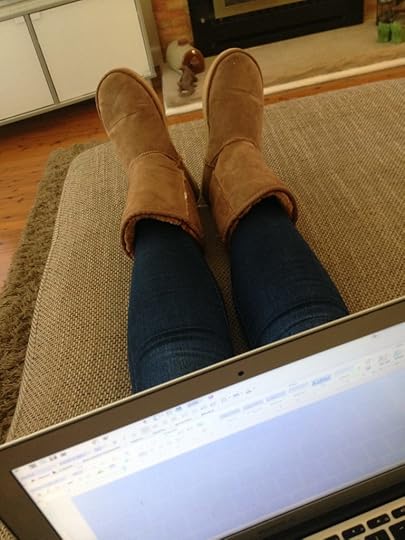
As a passionate creative, I often think out of the box to diversify and monetise my skills. I love discovering how other creatives do it too – it gives me ideas. A writer’s life isn’t just about sitting down in your uggies and opening up a laptop! With that in mind, I present to you my 2019 highlights!
None of the year’s lowlights are here,
because they won’t inspire anybody, though be assured they came along and
challenged me as they do everyone else.
I also haven’t included news about my creative support business – editing and mentoring writers, preparing books for publication with layouts for print and ebook, and teaching creative writing classes – as that’s all still chugging along nicely.
Publications
I was thrilled to have several stories published this year, selected from hundreds of submissions (in one case 450)!
“The Call of the Gypsy Fetcher” – published, WhimsyCon Anthology (Denver WhimsyCon 2019) – Magic can be your downfall as well as your saviour, and when desperation reduces Lucetta’s choices, it becomes a question of life or death.“A Witch’s Place” – published, AntipodeanSF Magazine (Issue 250, 2019) – When Maggie’s aunt is accused of witchcraft, she can’t imagine her day getting any worse… FREE TO READ“Shy”– podcast, Manawaker Studio’s Flash Fiction Podcast (Manawaker 2019) – Evie is torn between three lives: the life she has, the life she needs, and the life she believes will never come. Trapped in their island village, her brother knows better than she does which life will be hers. FREE TO LISTEN“The Family Tradition” – published, Untitled: Issue Eight Anthology (Busybird, 2019) – A morning of daydreams has Mia reconsidering her relationship with food.“Spellbreaker” – published, Of Beasts & Butterflies Anthology (NBWG 2019) – Neglected teens Hansel & Gretel find their way to The Sugar House where only fire can save them, a modern Australian adaptation of the fairy tale.
Two of those are free to read/listen – just click above to access!


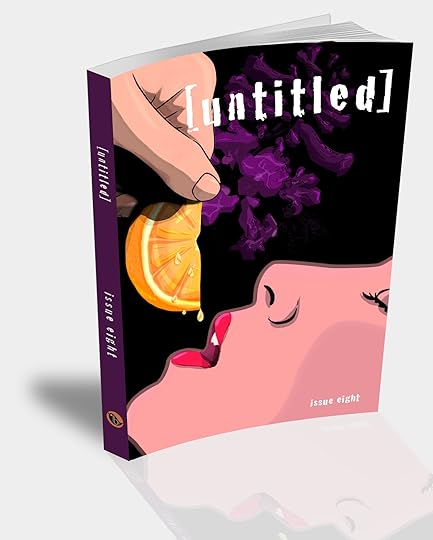
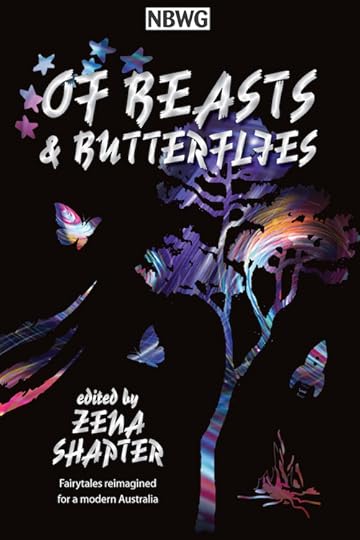
I also participated in a world record attempt, the ‘most authors to contribute to an anthology’; and was shortlisted for the Marjorie Barnard Short Story Award 2019 – what an honour!
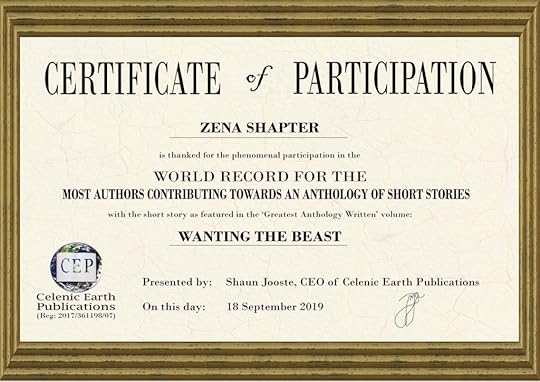
I attended two writing festivals, the Speculative Fiction Festival and Writers Unleashed, both in Sydney. My novel, Towards White, is also still selling well, which is amazing!
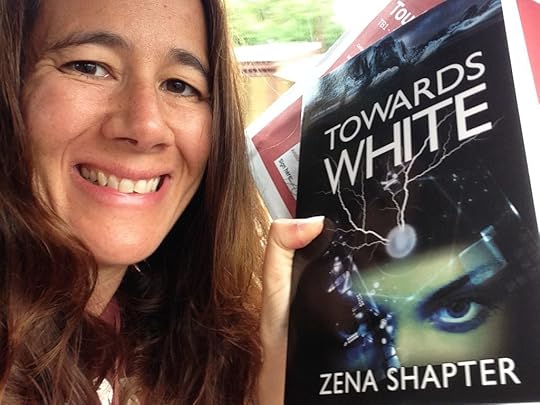 Posting a copy to a reader!
Posting a copy to a reader!And I’m writing a new novel – watch this space!
Young Adults
This year it’s also been wonderful to read a stack of writing by young adults. I judged the Mosman Literary Awards, young adult section; I tutored about a dozen HSC students in English; I taught school holiday workshops for young writers; and went into local schools to teach creative writing too.
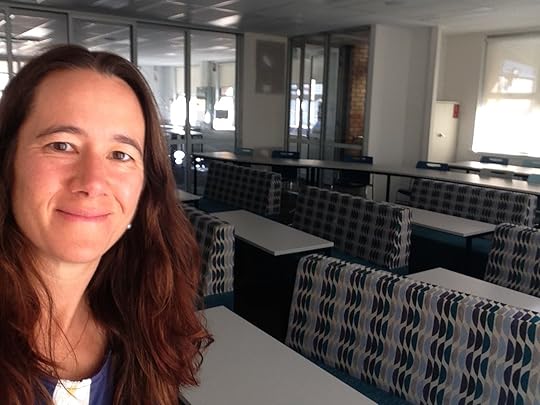
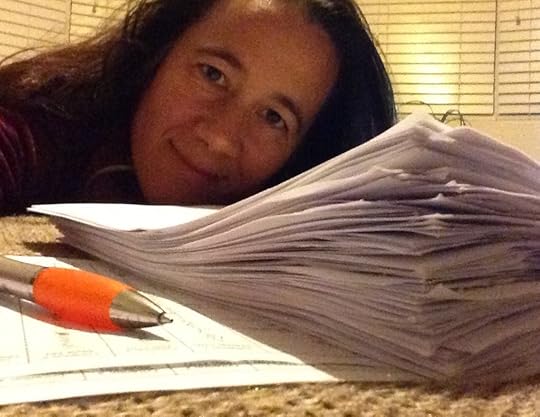

The best thing about working with young
adults is discovering what concerns they have in their lives, giving me insight
into future generations. As a writer of science fiction, I truly appreciate the
glimpses I get!
Blog
As well as sharing news on my blog about
achievements and events, I also wrote about topics that interested a lot of
online readers, such as:
The Importance of Place – all about being an immigrantWhen Death Snaps at Our Heels – a watery near-death experienceAbout Being a Book Layout Designer – an interview about this aspect of my creative support business and how I balance it with being a writerAre You Afraid of Technology – the cultural importance of science fiction writingKri-ei-tiviti for Your Child’s Future – talking about the power of creativity, children and how it will save their futureChallenge: Stamina – How to Keep Going – 10 tips on how to keep pursuing your creative endeavours5 Tips for Young Writers – creative writing advice based on my experience judging the Mosman Literary Awards over the yearsFREE Critique Guide – advice for giving writers critiques and receiving them
More to come in 2020!
Inclusive Creativity Advocate
This year has also been full of
community-based highlights, each upscaling the work I do to raise the profile
of writers and promote writing.
I appeared on a panel talking about the future of creativity at the Glen Street Theatre. From the enthusiastic feedback I received afterwards, I clearly connected with audience members.
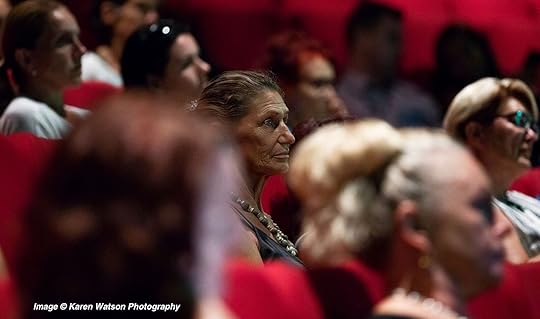
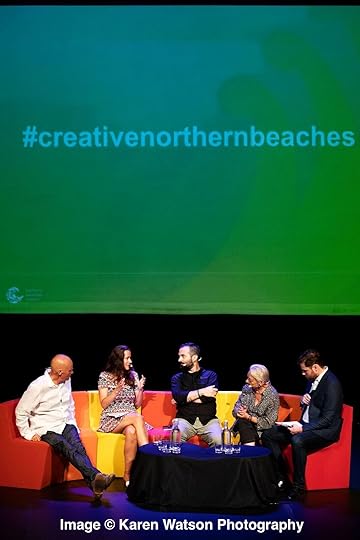
Next I was a Forest Ambassador for the Northern Beaches Council, helping kids from Cromer Primary School to express their appreciation for the endangered Spotted Gum tree through poetry. Their words created a collaborative poem that was then exhibited at Eramboo Artist Environment with the glorious artwork of Gloria Florez.

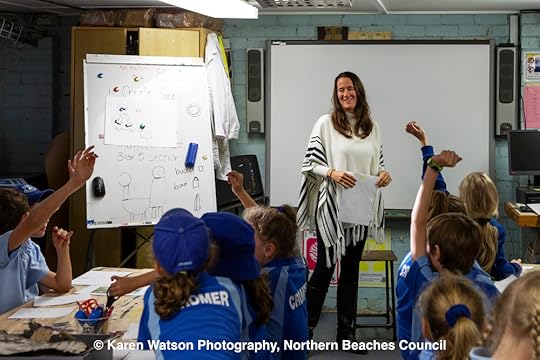


I appeared at the 2019 Seniors Festival to promote writing to seniors, and taught a creative writing workshop at Carer’s Day Out to promote writing to carers.
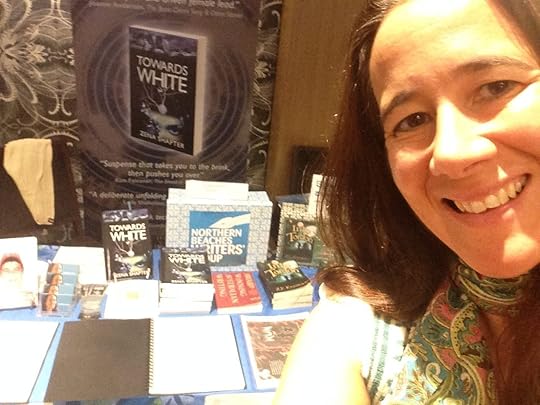
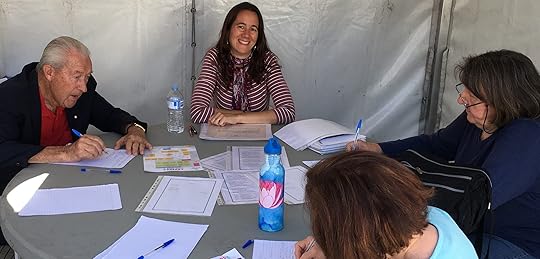
During the 2019 Manly Art Festival, I also taught a workshop the ‘Hidden Stories in Art’ at Manly Art Gallery & Museum, to explore the relationship between visual and literary art.
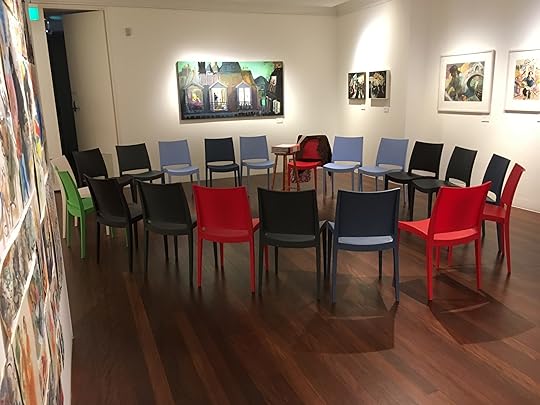
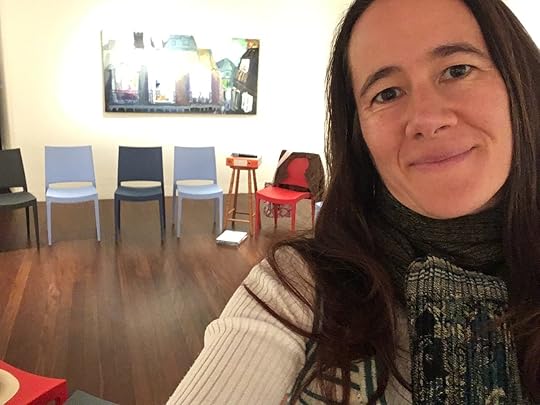
Finally, my biggest community project of the year was the inaugural Art & Words Project. I was thrilled to collaborate with the Northern Beaches Council Libraries and Manly Art Gallery & Museum to turn my idea of an anthology of twenty-four local writers and artists into reality. As well as all the set-up and organisation, I worked with the library and gallery to judge writing submissions, match writers and artists, edit stories, consult on the anthology’s production and organise a launch to remember. I’m very proud of the result.
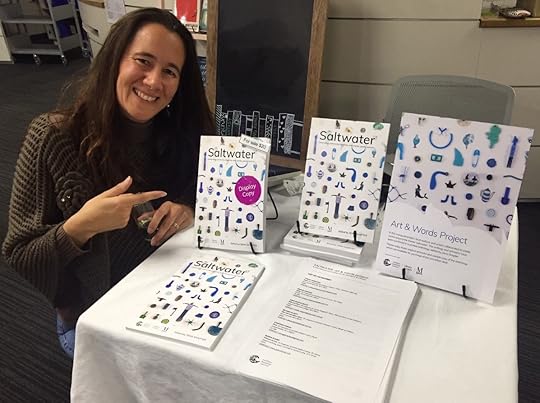

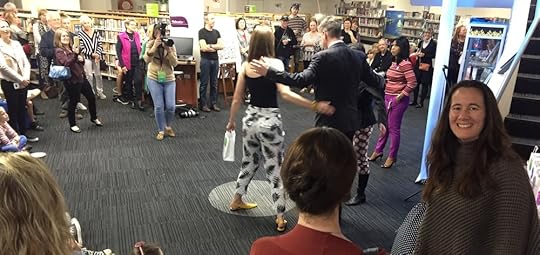
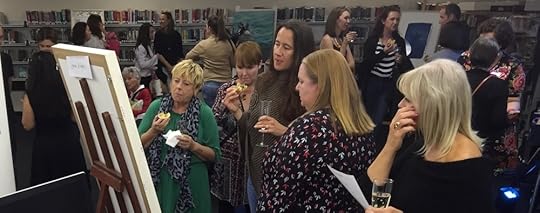
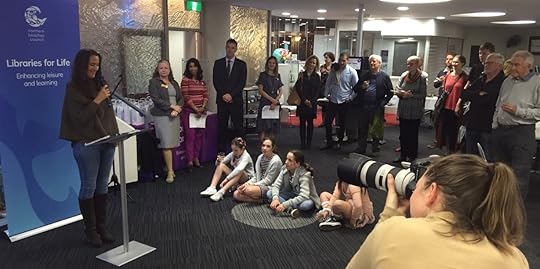
2020
As you can see, 2019 was an extremely busy year. I’m grateful for every second of it. Yes, even the lowlights. Without them I wouldn’t be the person I am today – a weaver of words who gets to share that wonderful experience with others: in the community, in schools and at festivals, adults, children and young writers, seniors, carers, and most importantly… readers.
Thank you everyone for your continued support!

